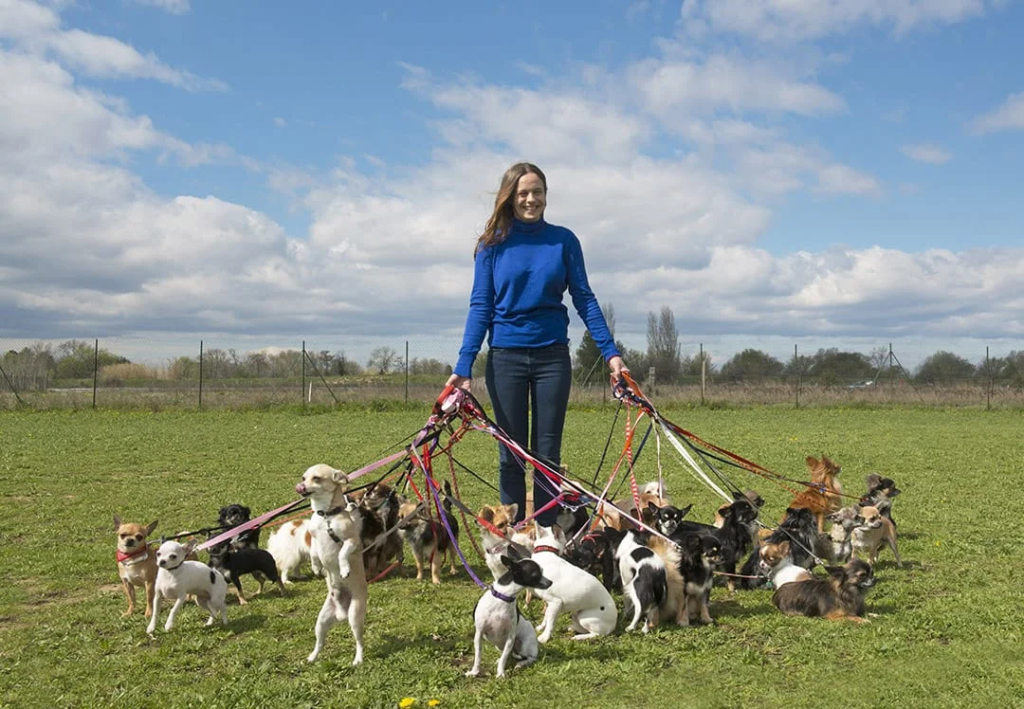Dog walking jobs have become increasingly popular in recent years, driven by the growing number of pet owners and the increasing demand for services that cater to pets. For those who love animals and enjoy being active outdoors, dog walking can be a fulfilling and flexible career choice. With a wide range of job opportunities available, it’s no wonder that people are turning to this field for both part-time and full-time employment. In this article, we will explore the world of dog walking jobs, the skills needed, how to find clients, potential earnings, and the benefits of this rewarding profession.
How to Get Started as a Dog Walker
Starting a dog walking career is relatively simple, especially for those with a passion for animals and some basic business skills. Here are the key steps to help you get started:
1. Research Local Market Demand
The first step in starting your dog walking business is to research the demand for services in your area. Dog walking jobs can be highly competitive in urban areas, but there may be opportunities in suburban and rural regions as well. Consider the demographics of your area—people with busy schedules, elderly pet owners, or individuals with physically demanding jobs are likely to need dog walking services.
2. Create a Business Plan
If you plan to start a dog walking business, it’s a good idea to create a basic business plan. This plan should outline your services, pricing structure, target market, and marketing strategies. Some questions to consider include:
What will you charge per walk or per hour?
Will you provide additional services like feeding or pet sitting?
How many clients do you want to serve each week?
What kind of marketing methods will you use to attract clients?
3. Get the Necessary Equipment
You’ll need a few essential tools to start dog walking, including:
Leashes and Harnesses: Ensure you have strong and comfortable leashes and harnesses to keep the dogs secure during walks.
Poop Bags: As a dog walker, you’re responsible for cleaning up after the dogs during the walk. Always carry extra bags.
Water and Treats: Depending on the length of the walk, you may want to bring water for the dog, especially on warm days. You can also carry treats as rewards for good behavior.
Comfortable Footwear: Dog walking can be physically demanding, so investing in comfortable and durable shoes is important.
4. Get Insurance

Though it’s not legally required, getting insurance for your dog walking business is highly recommended. Insurance can cover you in case of accidents, dog injuries, or property damage. Pet care insurance is available and is designed to offer peace of mind for both you and your clients.
5. Market Your Services
To find clients, start by using your personal network—tell friends, family, and neighbors about your dog walking services. You can also promote your services through the following methods:
Social Media: Create profiles on platforms like Facebook, Instagram, and LinkedIn to showcase your services and connect with potential clients.
Online Listings: Websites like Rover, Care.com, and PetBacker allow dog walkers to advertise their services and connect with pet owners in their area.
Flyers and Business Cards: You can distribute flyers in pet stores, local cafes, or veterinary clinics. Business cards can be shared with anyone who might refer clients to you.
Word of Mouth: Happy customers are often your best marketers. Encourage your clients to leave reviews or refer friends and family to you.
6. Offer Additional Services
While walking dogs is the main service you’ll provide, there are many other related services that can help you stand out and earn more income. Some of these include:
Pet Sitting: Many dog owners need someone to look after their pets when they go on vacation or work long hours. Offering pet sitting services can supplement your income.
Dog Training: If you have experience or qualifications in dog training, offering training sessions can be a lucrative addition to your services.
Grooming: Offering basic grooming services, such as brushing or nail trimming, can be another way to expand your dog walking business.
How Much Can You Earn as a Dog Walker?
The earnings from dog walking can vary depending on where you live, how many clients you have, and how often you walk dogs. On average, dog walkers in the UK can earn anywhere from £10 to £20 per hour, depending on their experience and the services they provide. In larger cities, dog walkers may charge more due to higher demand and the cost of living.
For example, if you walk three dogs per day at £15 per hour, you could earn £45 per day. If you work five days a week, that’s £225 per week, or around £900 per month. If you take on additional clients or offer more services like pet sitting or dog training, your earnings can significantly increase.
The Benefits of Being a Dog Walker
Aside from the income, dog walking comes with several other benefits:
Flexible Hours: Dog walking is an ideal job for those looking for flexibility. You can schedule your walks around your personal life and other commitments.
Physical Activity: As a dog walker, you’ll be walking for extended periods, which can help you stay fit and active.
Love for Animals: If you’re an animal lover, spending your days with dogs can be incredibly fulfilling.
Job Satisfaction: Dog walking is a job that offers immediate satisfaction. Dogs are often excited to see their walkers, and knowing that you’re providing a vital service to pet owners can be rewarding.
FAQ’s
What Are the Benefits of Being a Dog Walker?
Working as a dog walker offers several benefits, making it an appealing career for animal lovers. These include:
Flexibility: Dog walking jobs are typically flexible, allowing you to set your own schedule. You can work part-time or full-time, and you have control over how many clients you take on.
Physical Activity: Walking dogs is a great way to stay active. It provides regular exercise, which can help you maintain a healthy lifestyle.
Love for Animals: If you enjoy spending time with dogs, dog walking allows you to make a living while doing something you love.
Job Satisfaction: Many dog walkers find the work satisfying, especially when they see the joy their furry clients experience during walks.
What Are the Requirements for Dog Walking Jobs?
While there are no strict qualifications needed to become a dog walker, there are several qualities and skills that can increase your chances of success:
Physical Stamina: Dog walking requires walking long distances, often with multiple dogs, so physical fitness is important.
Trustworthiness: Pet owners trust dog walkers with their pets, so reliability and honesty are key. Being punctual and following instructions are essential.
To Conclude,
Dog walking jobs are a great option for individuals who are passionate about animals, enjoy staying active, and are looking for flexible work. Whether you are starting your own dog walking business or looking for a part-time gig, the demand for dog walkers is growing as more people embrace pet ownership and require assistance with their pets. By offering professional, reliable, and caring services, you can create a fulfilling career while spending your days surrounded by furry friends.
To read more, Click Here

